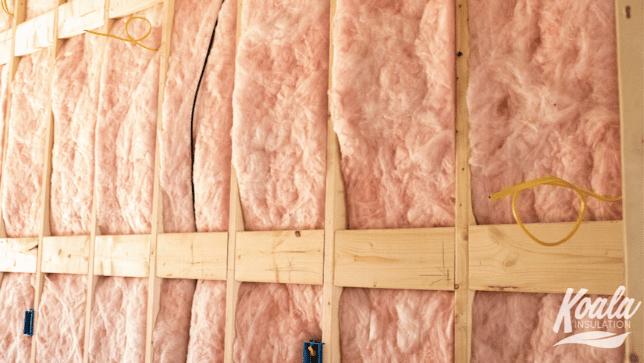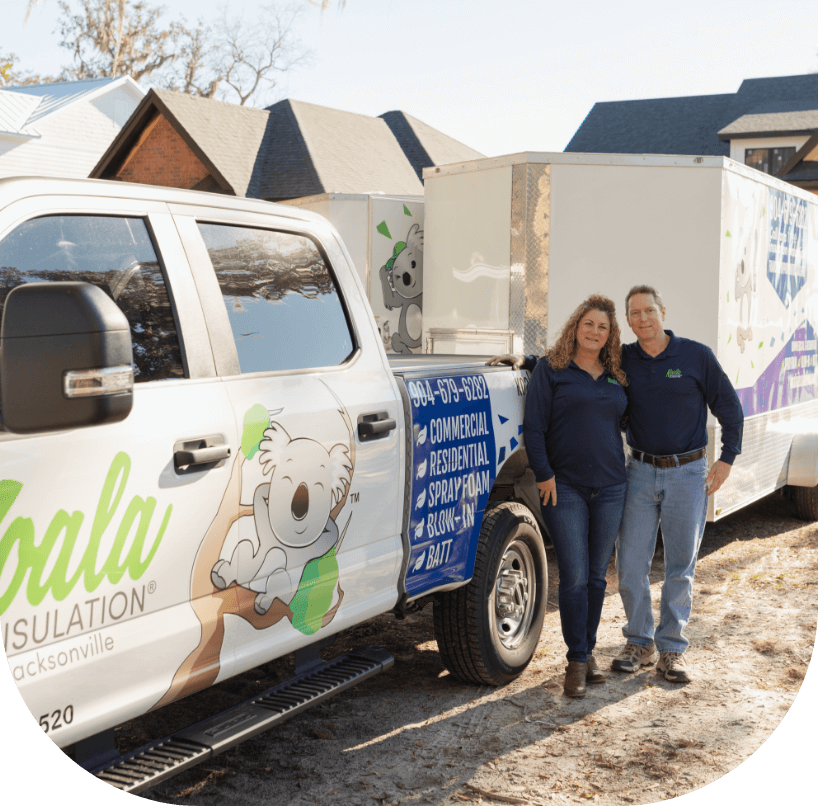
How Insulation Works: The Key to Keeping your Home Cozy and Efficient
- May 30, 2024
Insulation is the key to maintaining a comfortable and energy-efficient home. Let's dive into how it works, the common types available, and the key pain points it addresses.
The Basics: How Insulation Works
Insulation works by slowing down the transfer of heat, providing resistance to heat flow. In the winter, it keeps the warm air inside, and in the summer, it keeps the hot air outside. This not only makes your home more comfortable but also reduces your heating and cooling costs.
There are several types of insulation you might consider: spray foam, batt, and blown-in. Each has its unique benefits and addresses different issues you might have. It's isn't just about keeping your home cool in the summer, insulation addresses many issues you may not know are related to problems you may be facing.
Maintaining Temperature
Have you ever walked into a room that feels like a different climate zone compared to the rest of your house? Uneven temperatures can be frustrating and uncomfortable. Proper insulation helps maintain a consistent temperature throughout your home, so every room feels just right.
High Energy Bills
If your energy bills are sky-high, poor insulation could be to blame. Without adequate insulation material, your heating and cooling systems have to work overtime to compensate for the lost energy. By insulating your home, you can significantly reduce your energy consumption and save money on your utility bills.
Unwanted Noises
Whether it's the sound of traffic, noisy neighbors, or the kids playing in the next room, noise pollution can be a real nuisance. Home insulation helps dampen sound, providing a quieter, more peaceful environment inside your home.
Moisture Problems
Moisture can lead to mold, mildew, and structural damage. Some insulation, such as spray foam, can prevent moisture from causing expensive problems in your home.
Air Leaks and Drafts
Feeling a draft near your windows or doors? Air leaks are common in many homes and can make it difficult to maintain a comfortable temperature. Insulation, especially spray foam, can seal these leaks and keep the drafts out.
Types of Insulation
Now, let's take a closer look at the different types of insulation and how they address these pain points:
Spray Foam Insulation:
Spray foam is like the Swiss Army knife of insulation. It sprays onto surfaces and expands, filling every nook and cranny. This makes it fantastic for sealing air leaks and creating an airtight barrier.
Spray foam also acts as a vapor barrier and provides excellent resistance to heat flow. Options like open cell foam and polyurethane foam cater to different needs within your home.
Batt Insulation:
Batt insulation, those fluffy, pink rolls you often see, is a classic and reliable choice. It is made from fiberglass, mineral wool, or natural fibers. It cuts to fit between the studs in walls, floors, and ceilings. Effective, cost-efficient, and easy to install, making it a popular choice for many homeowners.
Blow-In Insulation:
Blown-in insulation involves blowing small particles into the attic or wall cavities, forming a dense, layer. Great for adding insulation to existing structures without major renovations. Blown-in ensures even coverage, filling hard-to-reach areas and providing consistent thermal performance.
Why Insulation Matters
Beyond just comfort, good insulation is key to reducing your heating and cooling costs and your carbon footprint. Insulating your home with materials like spray foam and fiberglass can save you money and help the environment. Proper insulation can also increase your home's value, making it a smart investment for any homeowner.
Lessening the Burden on Your HVAC System
A well-insulated home places less strain on your HVAC system. When insulation materials like spray foam insulation and fiberglass insulation are properly installed, they help your heating and cooling systems operate more efficiently. This not only extends the lifespan of your HVAC system but also ensures that it doesn't have to work as hard to maintain a comfortable temperature. The result is lower energy consumption, reduced maintenance costs, and a more reliable system overall.
Average Cost Savings with Proper Insulation
When your home is properly insulated, you can expect significant cost savings on your energy bills. On average, homeowners can save up to 15% on heating and cooling costs by adding insulation to attics, floors, and walls. This means more money in your pocket and less strain on your HVAC system.
Ready for Expert Advice?
At Koala Insulation, we understand the importance of a home that always feels just right. We offer expert guidance and free insulation inspections to help you choose the best solution for your home. Let's make your home more comfortable and energy-efficient together! Find a Koala Insulation near you!
Your cozy, efficient home awaits!

Recent Posts
-
Water Damage and Insulation: Expert Solutions to Protect Your Home and Prevent Future Issues
Read Article -
Unlock Savings with the Inflation Reduction Act: How Insulation & Solar Attic Fans Could Boost Your Home’s Efficiency
Read Article -
Remember Last Winter’s Chill? Act Now to Stay Warm This Year!
Read Article -
The Hidden Costs of Poor Insulation: How to Save Money Year-Round
Read Article -
Is My Home Well Insulated? Key Signs and Expert Tips for Energy Efficiency from Koala Insulation
Read Article

Be Your Own Boss.
Secure Your Future.
Make A Difference.
Becoming a Koala Insulation franchise owner offers life-changing benefits. A low initial investment and extensive training makes it easy to start your own franchise and find success. Get started today!
Schedule A Call
Why a Koala Insulation Franchise Simply Makes Sense
Ready to take the leap into franchising?
-
Be in control of your financial future and have ample opportunity to increase your net worth.
-
Joining an already successful brand means a lower failure rate.
-
Own an asset that pays dividends and can be sold for more in the future.
-
Get a proven business model and strategies instead of learning on your own.
-
Have complete control over your career, hours, and investment.
-
Be the first to tap into untapped territories you can later expand on.
-
Your reputation and brand name recognition are already established.
-
Senior leadership in the Koala franchise system has over 40 years of franchising experience.